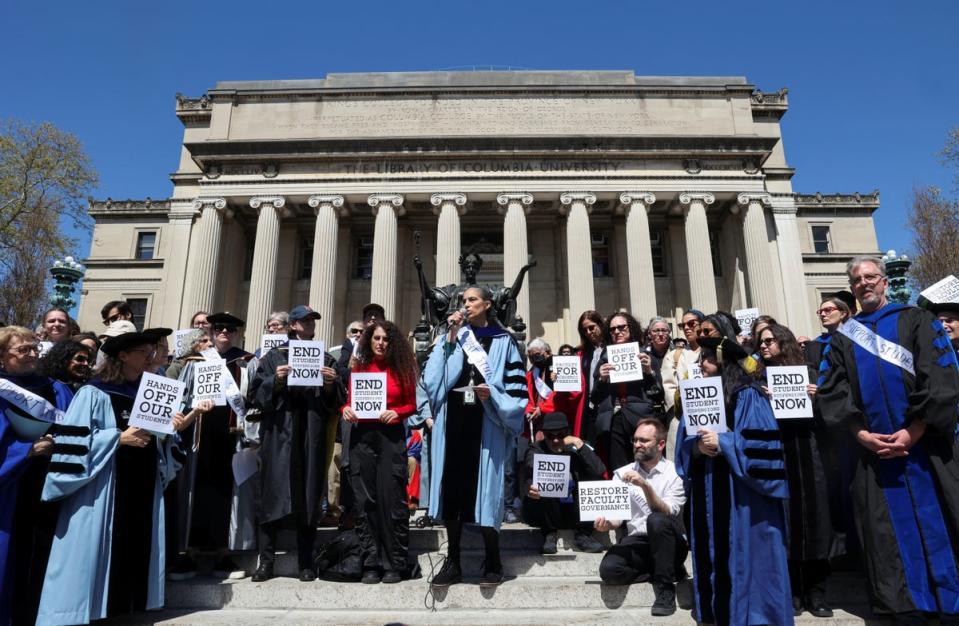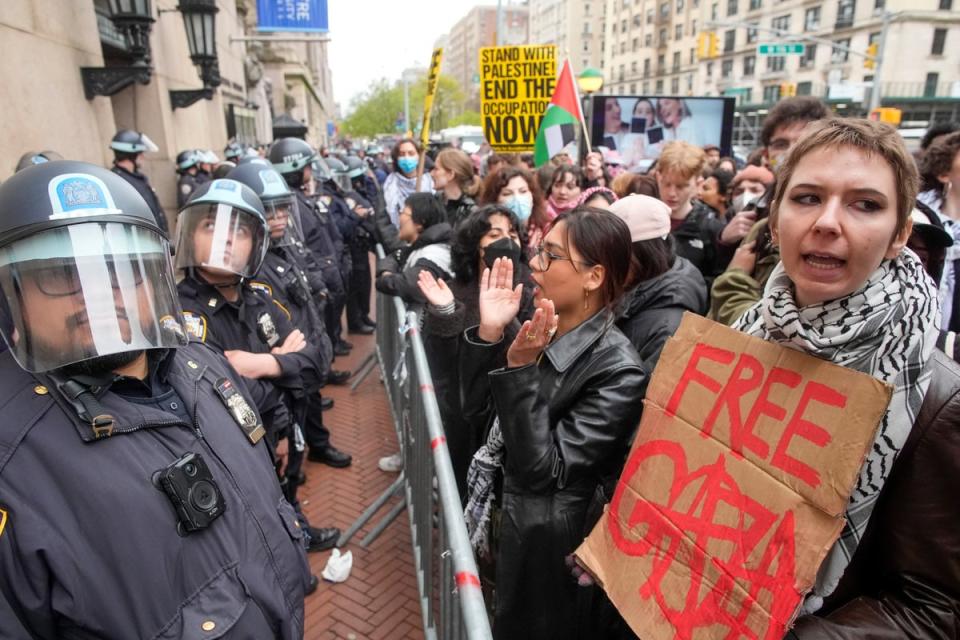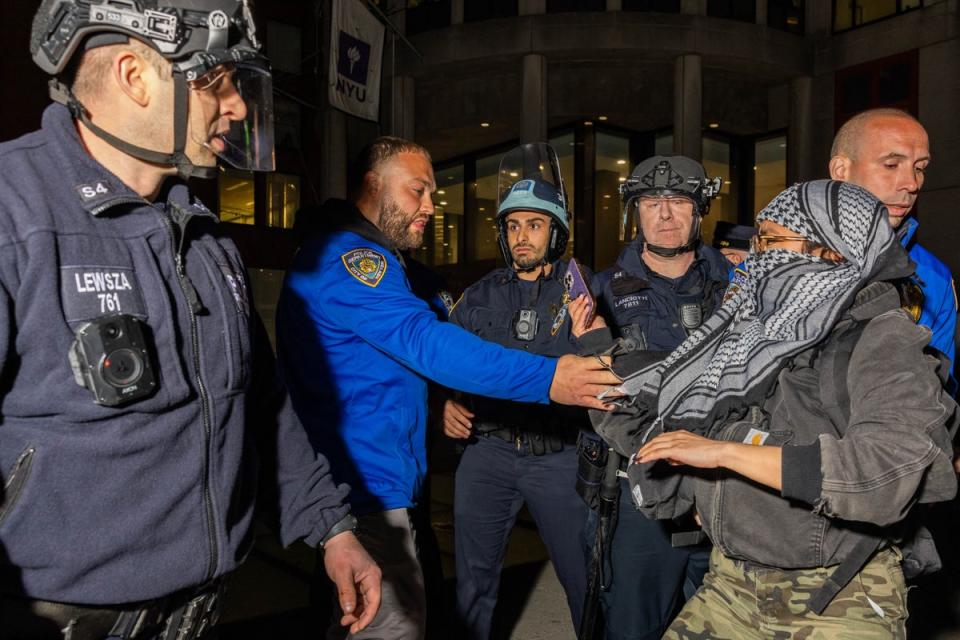Faculty seek to censure Columbia president after 100 arrested in chaotic pro-Palestine protests
An organisation of Columbia University and Barnard College professors is calling to censure the school’s president over her handling of pro-Palestine student protests.
The Columbia and Barnard chapter of the American Association of University Professors will submit a censure proposal to the university’s senate, according to the Columbia Spectator, a student newspaper. The university senate, a policy-making body for the school, is made up of administrators, faculty, staff, alumni and students. They are expected to vote as soon as Wednesday on the censure submitted by the faculty members.
The censure condemns university president Minouche Shafik’s decision to ask the New York City Police Department to remove and arrest students staging a “Gaza Solidarity Encampment” on the campus. Officers arrested some 100 students on Thursday. This decision “violated the fundamental obligations of shared governance,” the censure text, obtained by The Independent, reads.
“We are calling for the censure of President Shafik, not for her resignation,” the censure reads. “We are calling for a recommitment to our core values on the part of our president, her administration, and the Board of Trustees. At the same time we condemn unequivocally any political interference in the governance of our university. That power rightfully belongs in the first instance to the faculty.”
Meanwhile, Ms Shafik is “focused on deescalating the rancor on Columbia’s campus,” a university spokesperson told The Independent.
“She is working across campus with members of the faculty, administration, and Board of Trustees, and with state, city, and community leaders, and appreciates their support,” the spokesperson said.

The authors of the censure also rejected Ms Shafik’s claim, made to the NYPD, that the protesting students posed a “clear and present danger” to university operations. NYPD chief John Chell admitted late last week that the students arrested were protesting peacefully.
Last week marked the first time the NYPD has been called to the campus for protests since 1996.
While students at Columbia have been protesting against the Israel-Hamas war since it began on 7 October last year, pro-Palestinian demonstrations ramped up last week. Last Wednesday, Ms Shafik and other school officials testified before Congress about the pro-Palestine protests and reports of antisemitism on the school’s campus.
Ms Shafik, in an effort to show the school’s commitment to battling antisemitism, told lawmakers that 15 students had been suspended and one visiting professor was fired for their comments about the Israel-Hamas war.
The next day, students erected the pro-Palestine encampment and began staging protests. During a weekend of more protests, some Jewish students reported antisemitic harassment and even physical assaults.

One rabbi affiliated with Columbia told some 300 Jewish students to leave campus over the weekend ahead of Passover on Monday for fear of antisemitic harassment. However, Columbia/Barnard Hillel, the school’s centre for Jewish life, said on Twitter/X that it does not believe students need to leave campus. But the organisation did say school officials and police must “do more to ensure the safety” of Jewish students.
Robert Kraft, a major Columbia University donor, also said he was pulling funding to the school because he is “no longer confident that Columbia can protect its students and staff”.

Now, pro-Palestine protests are erupting at other universities in the area and across the country. On Monday night, NYPD officers arrested 150 pro-Palestine student protestors at New York University.
Meanwhile, pro-Palestine encampments and demonstrations in solidarity with students at Columbia are cropping up at Yale University, the Massachusetts Institute of Technology, Tufts University, the University of Michigan and the University of California, Berkeley.
The Independent has contacted Ms Shafik’s office for comment.

 Yahoo News
Yahoo News 
